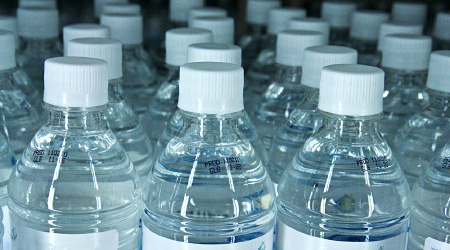10 Money Mistakes Everyone Makes

Living means learning but some mistakes are too costly to make especially when it comes to managing finances. Making poor decisions with regards to spending money add up over time and can lead to thousands of dollars in excess debt or depleted savings with little to show for it. The following are 10 of the most common money mistakes everyone typically makes at some point or another.
1. Buying New Instead of Used
Everyone knows new automobiles depreciate the minute they're driven off the lot yet people still buy them for a multitude of different reasons. Many nationally recognized dealers offer certified pre-owned vehicles under warranty. Why waste $5,000-$10,000 because you got a vehicle 12 to 18 months before someone else because you bought it new?
2. Nickle Rich, Penny Poor
Nickel rich but penny poor is a common phrase used to describe people who wear expensive clothes, drive expensive cars and eat at expensive restaurants but don't have the income to support it. It's nice to enjoy yourself periodically but spending money you don't have inevitably leads to greater financial repercussions later on.
3. Keeping Up With the Jonses
In a consumer driven society everyone always wants the latest and greatest gadgets or products to brag to their neighbors and friends about. Getting in debt by spending money you don't have simply because a friend or relative bought something fancy is counterproductive financially.
4. Passing On Retirement Plans
A surprising number of workers choose not to take advantage of their companies retirement offerings. Not only are the dollars deducted pretax but many companies also offer matching up to a certain percentage or dollar amount. This is by all definitions free money handed to you simply because you're planning for the future.
5. Having Low Deductibles
Many insurance companies and agents will tell people only to file a claim if it is expensive, ideally more than a few hundred dollars. With a $250 deductible many consumers will pay significantly higher premiums on auto insurance even though they may not make a claim for years. Increasing this to $1,000 can save significant money in a short period of time.
6. Buying Things You Don't Use
There's a reason why people can't park their cars in the garage and have off-site storage at $50 a month. We are a society that buys stuff we don't need, don't really want and hardly ever use. Spontaneous purchasing can be exciting but also a significant cash drain whose funds could be used for more beneficial purposes.
7. Paying for Bottled Water
The Environmental Protection Agency regulates municipal water supplies and guarantees they are free from pollutants and harmful chemicals. Paying for bottled water is one of the most ridiculous things consumers do on a regular basis. Investing in a high-quality water filter for the kitchen sink or refrigerator is all that's necessary assuming you don't like the taste of your municipal water.
8. Buying Name Brands Only
Marketing is essential for one brand to separate themselves from another. From a consumers perspective however, the only characteristics which should matter are quality and price. Buying name brand doesn't guarantee you're getting the best deal for your money. Use online reviews and word-of-mouth to get better products for less money.
9. Paying for Books
Paying $30 for a hardcover book that just came out can be a substantial money mistake over time. Paperback versions are often a third of the price and used books can be purchased for even less. Many popular titles are also available at local libraries or from friends and relatives so in reality there is no reason to ever pay that much for a new book.
10. Wasting Savings
As everyone knows, the devil is in the details and it's the small purchases over time which waste the most money. Many individuals complain that they are unable to save money with their current income but in reality it's not how much you make but what you do with it. Paying four dollars for coffee five times a week is the equivalent to $1,000 a year in savings. Eating out, buying coffee and treating yourself generally should be a periodic treat a few times a month not a daily occurrence.
Elsewhere on StockMonkeys.com







